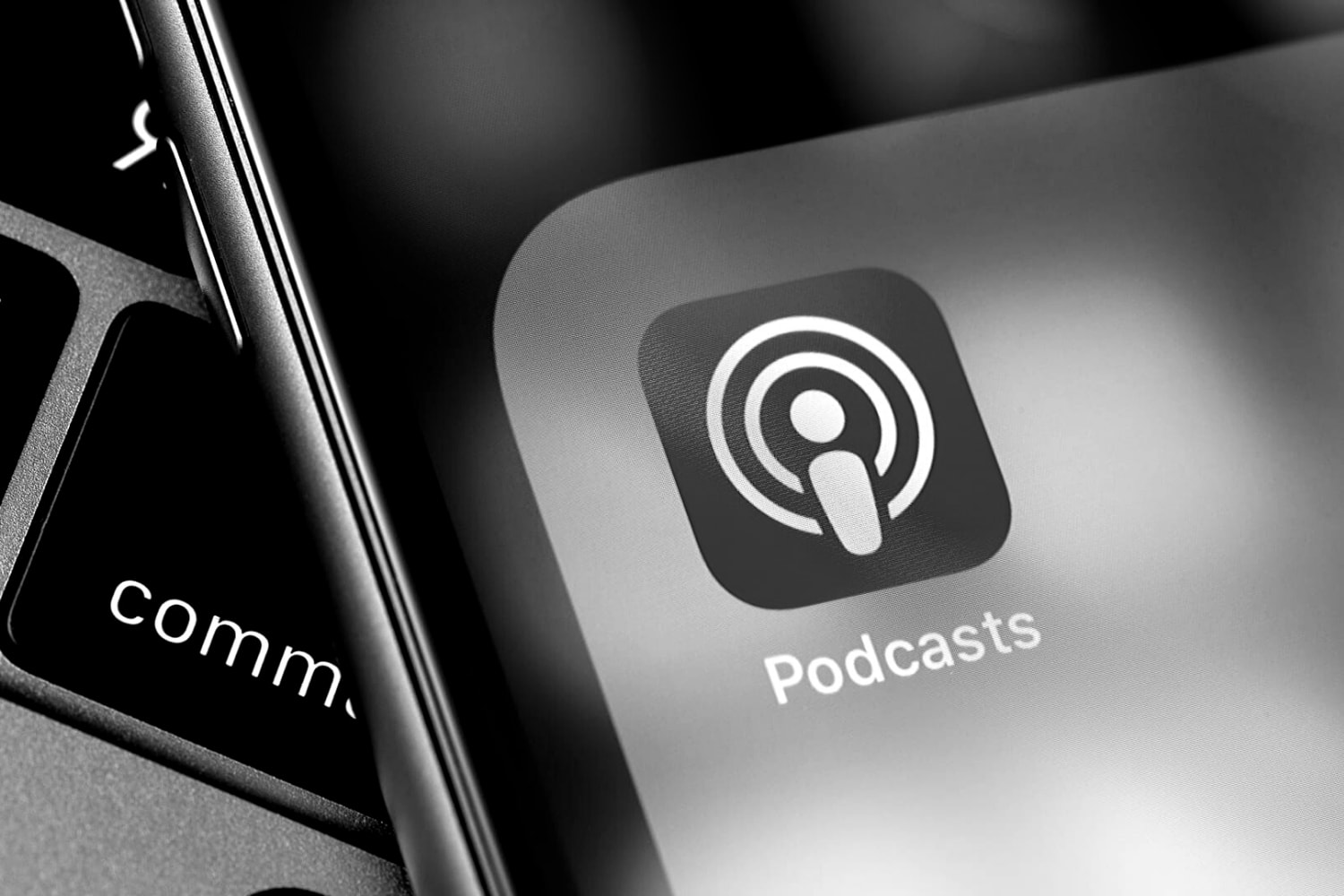
25 Mar Cybersecurity ROI: Podcasts Are Far Better Than Webinars
Choose your media wisely. You may not have a second chance.
 – Steve Morgan, Editor-in-Chief
– Steve Morgan, Editor-in-Chief
Sausalito, Calif. – Mar. 25, 2020
It should come as no surprise that over the past couple of weeks Cybercrime Magazine has been swarmed with inquiries from cybersecurity companies looking to have us produce podcasts and webinars.
The COVID-19 outbreak has canceled sales presentations, conferences, and marketing programs. In response, many of our clients are rushing to replace these with new online media.
Earlier this week, we had two guests on Cybercrime Radio, the podcast channel on Cybercrime Magazine. Robert Herjavec and Scott Schober both sang from the same songbook. Their advice to everyone from small business owners to CEOs of major corporations — slow down, take a deep breath, don’t panic, be strategic and think carefully about your next steps. CMOs should heed this message.
Don’t rush into producing a new branding or demand gen program without asking — what’s better for us, a podcast or a webinar?
Cybercrime Magazine has an opinion on this, and it’s just that — our opinion. There’s a solid argument for both, depending on what you’re trying to accomplish. But, make no mistake about it, we do have a very strong opinion on the matter.
Podcasts are better than webinars (in our world). Much better. BUT — and this is a big but — that assumes you are trying to reach CISOs (chief information security officers) and senior decision makers, as opposed to security practitioners who are one or two rungs down the ladder.
We’ve asked many Fortune 500 and Global 2000 CISOs which medium they are more likely to tune into. Podcasts won by a country mile. CISOs are after thought leadership. They have short attention spans because so many people and problems are tugging at them. They expect that their security teams will watch webinars and consume other content in order to evaluate products and services.
Simply put, podcasts are strategic, webinars are tactical — insofar as the content they publish. There are certainly exceptions.
There are numerous points to consider and reasons why Cybercrime Magazine is heavily invested into podcast production, more so than webinars.
Webinar Drawbacks
Webinars require substantially more time to produce compared to podcasts, and cybersecurity companies often underestimate the effort. Webinars are multi-media and involve audio, video, and presentation material. This means a great deal of preparation, production and rehearsal time — and room for error.
Many webinars are done in realtime and a live online performance will never be as good as a pre-recorded interview or voice-over. Some webinar presenters are caught off guard by questions or simply don’t have good answers.
Webinars usually aim low (in terms of titles they expect to attend) and require registration in order to capture contact information for lead generation programs. Not only do many attendees dislike this practice, but it typically results in a low turnout. How many Fortune 500 CISOs do you think will volunteer their contact information to sit through a webinar?
Some webinars turn into marketing disasters because they are one-time events. And that means a one-time push to get people registered. We’ve heard stories of cybersecurity webinars that draw in a mere handful of people.
A webinar can be pre-recorded to overcome some of these drawbacks. But they can also be a letdown for people signed up because they were expecting an interactive or “live event” experience.
Podcast Benefits
A podcast only involves audio and each episode can be produced in a fraction of the time that it takes for a webinar.
Podcasts are usually pre-recorded and lend themselves to much more polished productions. They are also more conducive to high-level guests and recognizable figures that a CISO or other decision makers would tune in to.
Podcasts can be downloaded for free, and without registration, on Apple Podcasts, Google Podcasts, and other podcast players, which are baked into just about all new smartphones, tablets, laptops, and desktop computers. So to begin with, a podcast has an instant audience, albeit that doesn’t mean all the right people.
A much larger audience can be expected out of podcasts because people don’t have to register or listen at a specific time. Podcasts are on 7x24x365 and people can listen anytime they like — commuting in the car or on the train, while taking a run, or at the kitchen table while eating breakfast. It’s what the listener prefers. Did you hear that?
Podcasts aren’t one-time events. So they have a much lower margin of marketing error compared to webinars. A podcast can be promoted over and over again. And the very nature of podcasts lends themselves to a much longer shelf life.
Some of our podcasts are delivered in bite-sized chunks, for instance, our popular one-minute episodes. An example is our “CISO Minute” series, hosted by former White House CIO Theresa Payton, and sponsored by Knowbe4, which was named one of the 5 best podcasts in 2019. This type of programming is not possible for webinars.
If you’re the CEO of a cybersecurity company, then would you rather be invited onto a podcast for a radio-style thought leadership conversation aimed at the C-suite, CIOs and CISOs, or a webinar centered on demonstrating a product or service?
Audience Development
At Cybercrime Magazine, we typically develop a weekly or monthly “series” for our clients. The idea is to build a following — a regular audience that will look forward to and listen to each episode.
“I really like the CISO Minute series,” says Deneen DeFiore, vice president and chief information security officer at United Airlines. “I’ve listened to several. They’re easy to listen to, just the right amount of time, and I often share with my team as the topics are relevant and spur discussions and conversations we need to have. It’s a good way to start a staff meeting!” adds DeFiore, who was previously senior vice president and global chief information and product security officer at GE Aviation when she started listening.
We routinely feature the top experts in our field, and sometimes cybersecurity celebrities and TV personalities, on our podcasts.
Large enterprise CISOs from Fortune 500, Global 2000, and mid-sized companies listen to our podcasts regularly. Many have informed us that they are not candidates for webinars, no matter how good the productions might be.
Short podcast episodes are great for social media. They can be shared on Twitter and LinkedIn with a widget that displays a play button and is conducive to clicking and listening.
Cybercrime Radio
Cybercrime Radio is the Cybercrime Magazine podcast channel. The shortcut URL that everyone remembers is Cybercrime.Radio. It’s easy to say and memorable, and so people are more likely to revisit it. Hey, we’re a media property but we’re marketers too!
Our Cybercrime Radio widget is on the Cybercrime Magazine homepage so that all of our website visitors can see it — a large audience. Each time a new podcast episode airs, it shows at the top of the list.
The Cybercrime Magazine podcast is on SoundCloud, Apple Podcasts, Google Podcasts, and all of the popular podcast player platforms.
When we produce a new podcast series, all of the episodes are part of the Cybercrime Magazine podcast. This provides our listeners with rich new content all of the time, and our clients launch with a built-in audience that is cross-pollinated from all of our podcast series, and our other content.
Are you undecided about podcasts vs. webinars now? If so, then that’s much better than rushing into a new production. Give it some deep thought. We think you’ll agree that podcasts are the way to go. And of course, we understand that there is a place for all types of content, including webinars. But if you can only do one, and you want our opinion, then now you have it.
“I could not agree more (albeit I am a bit biased),” says Ashwin Krishnan, COO at UberKnowledge. “My experience has been that podcasts lead to much deeper conversations and allows for a more human experience versus webinars, which is usually a one-way street even with Q&A thrown in,” adds Krishnan, who is also a writer for TechTarget, an IDG Contributor and IDG Influencer. “I also think that webinars usually have a lead-gen agenda while podcasts — most of them at least thus far — have an education agenda first and foremost.”
Don’t ever forget that you only have one chance to make a good first impression with your new podcast… or webinar.
– Steve Morgan is founder and Editor-in-Chief at Cybersecurity Ventures.
Go here to read all of my blogs and articles covering cybersecurity. Go here to send me story tips, feedback and suggestions.


